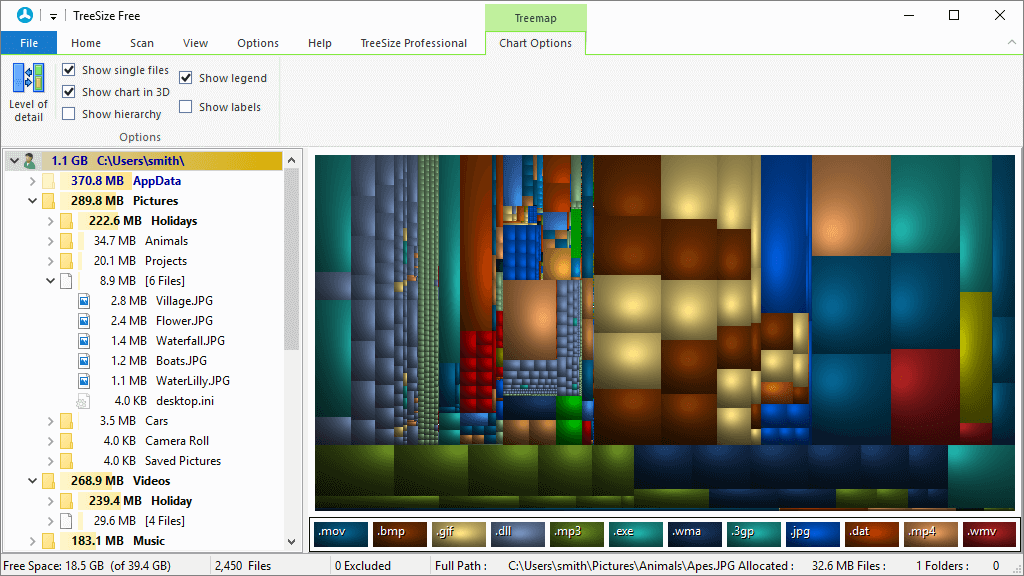

File Searching: Search for files and folders by size, name and/or date.File Management: Easily delete, move or open files directly from within TreeSize Free.File Comparer: Compare files and folders by size, name, timestamp and content.Export: Generate detailed reports and charts as HTML, XML, PDF, Text, CSV and Excel files.Duplicate Finder: Finds and removes redundant files taking up valuable disk space.Drill Down: Navigate through your entire hard drive to see which folders and files are consuming the most space.Disk Space Management: Quickly reclaim disk space by deleting, moving or compressing files.
 Disk Space Analysis: Locates large folders and files on drives, media and in the network. This application performs a very fast folder scanning, calculates the space occupied by every selected folder, displays hidden folders, prints reports, sorts items by name or size and customizes the display settings.Ĭustom filters can be defined that include folders and subfolders in scanning, the application displays folder details (included files and subfolders, last change and access time, attributes, owners and permissions) and integrates in the Windows Explorer context menu. TreeSize Free Portable is a handy tool that scans your selected drives, removable media and custom folders and displays the treesize of folders on the screen. So, at the end of the day I don't have a solution that I'm comfortable using.Find out exactly what is taking up space on your hard drive(s) in a tree-view. Sort-Object "Size (GB)" -Descending | Select-Object -First $Count This just feels inefficient to me, so I started looking at alternatives. However, the memory requirements increase sharply on systems with a large number of files and folders such as file servers. On my test drive it completes in about 60 seconds and consumed about 200MB of RAM. Surprisingly this solution works really well. This solution runs Get-ChildItem a very large number of times, and the majority of files on the system are counted multiple times.
Disk Space Analysis: Locates large folders and files on drives, media and in the network. This application performs a very fast folder scanning, calculates the space occupied by every selected folder, displays hidden folders, prints reports, sorts items by name or size and customizes the display settings.Ĭustom filters can be defined that include folders and subfolders in scanning, the application displays folder details (included files and subfolders, last change and access time, attributes, owners and permissions) and integrates in the Windows Explorer context menu. TreeSize Free Portable is a handy tool that scans your selected drives, removable media and custom folders and displays the treesize of folders on the screen. So, at the end of the day I don't have a solution that I'm comfortable using.Find out exactly what is taking up space on your hard drive(s) in a tree-view. Sort-Object "Size (GB)" -Descending | Select-Object -First $Count This just feels inefficient to me, so I started looking at alternatives. However, the memory requirements increase sharply on systems with a large number of files and folders such as file servers. On my test drive it completes in about 60 seconds and consumed about 200MB of RAM. Surprisingly this solution works really well. This solution runs Get-ChildItem a very large number of times, and the majority of files on the system are counted multiple times. 

I have tired dir/s and even Joakim Svendsen's "folder sizes using COM and by default with a fallback to robocopy.exe" function, but nothing seems to give much of an improvement in speed. From what I can tell, Get-ChildItem is my only real option. I've been trying to create a script that returns the largest folders on a drive.








 0 kommentar(er)
0 kommentar(er)
